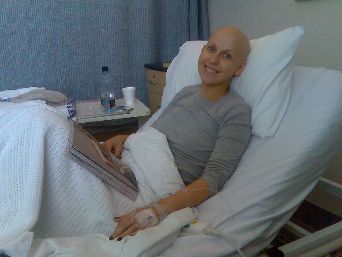Guest Blogger
What to Expect When You Find Out You Have Cancer
Guest Blogger: Harper Mac
“You have cancer.” The news can be numbing, and it can take a while to sink in. Nobody  wants to hear that they or someone they love has cancer. The diagnosis may seem unreal, but more than one-third of Americans will be diagnosed with cancer at least once in their lives. Not much about cancer is guaranteed, but what seems true is that your attitude really does matter. You still have control over how your life continues, and you can improve your outcomes over the next few weeks and months if you know what to expect and what to do.
wants to hear that they or someone they love has cancer. The diagnosis may seem unreal, but more than one-third of Americans will be diagnosed with cancer at least once in their lives. Not much about cancer is guaranteed, but what seems true is that your attitude really does matter. You still have control over how your life continues, and you can improve your outcomes over the next few weeks and months if you know what to expect and what to do.
Normal Feelings
Most people experience a similar set of different feelings that may ebb and flow at various times, according to the American Cancer Society. These include:
Denial: At first, almost everyone has trouble believing that they have cancer. Maybe the doctor read the test wrong; maybe the technician messed up the initial analysis; or maybe the doctor read you the test results for another patient.
Anger: Why you? You’re a good person: You’ve always been a good parent and spouse; you volunteer once a week; and you recycle all of your newspapers. You take care of yourself, so why should you be the one to get it?
Hope: You may feel hopeful that your treatment will be successful and that you have many more years of a full and productive life ahead of you. For many kinds of cancers, even if you didn’t catch them in their earliest stages, these hopes are realistic.
Stress: Stress can come from worrying about your treatment and recovery, about missing work and about taking care of your family. You may feel more stress if you don’t know much about your condition, so try researching it as much as possible and talk to your doctor. You may have trouble concentrating, a lack of appetite, and trouble sleeping because of stress.
Acceptance: For many, the state of accepting whatever comes is the culminating experience of going through some or all of the stages of grief. This isn’t to be confused with resignation, but rather a surrendering of those aspects beyond one’s own control.
What to Do
Some people seem to be naturally optimistic, while others need to work a little harder at developing and maintaining a positive attitude. There are some steps you can take to feel better about the diagnosis and function during one of life’s most trying experiences.
Join a support group. This lets you talk to others who are going through the same things you are. You can exchange support as well as advice. Joining a support group can take the pressure off your family members to be your sole sources of support, and it gives them a chance to recharge so that they can be even stronger when you need them.
Get a second opinion. Everyone is entitled to a second opinion, and you should seek one if you’re unsure about the original diagnosis. Even if the result is the same, you’re now more prepared to go forward instead of looking back.
Explore your treatment options. Your primary doctor may propose a certain course of treatment, but you might also want to consider other options. Cancer specialists can consult with you to discuss whether alternative treatments are good fits for you.
Being diagnosed with cancer is a life-changing moment, and your reaction to the news is an important factor in how your treatment progresses. While much is unknown about why certain people respond differently to treatment, it seems clear that a positive attitude helps you through the experience. Knowing what to expect and what actions to take can help you feel in control and more optimistic about your situation.
About the Author
Lindsey Harper Mac is a professional writer living in the Indianapolis area. She specializes in technology and social media articles. Lindsey is currently completing work on her graduate degree.





